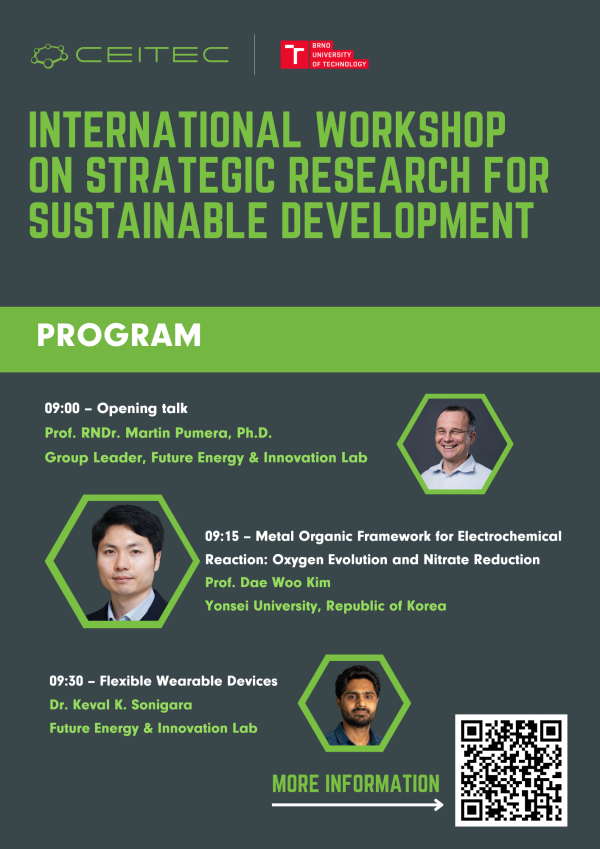About event
Metal Organic Framework for Electrochemical Reaction: Oxygen Evolution and Nitrate Reduction (Prof. Dae Woo Kim)
Metal-organic frameworks (MOFs) have emerged as highly tunable platforms for developing next-generation electrocatalysts due to their easy design by selecting the metal and organic dopants. In this talk, I will discuss MOF-based electrocatalysts tailored for two critical reactions in the oxygen evolution reaction (OER) and electrochemical nitrate reduction. For OER, MOFs serve not only as active catalysts but also as precursors to derive transition metal-based hydroxides. Structural engineering, especially hybridization with conductive supports, has been key to improving activity. In parallel, MOF-derived materials have shown promise in selectively reducing nitrate to value-added products such as ammonia. Ferrocene-nickel-based metal organic framework (FcNi-MOF) can be used as a highly efficient and stable NO3RR electrocatalyst, achieving a near-100% Faradaic efficiency for ammonia at -0.2 VRHE. The sequential reaction between catalytically active sites of ferrocene and nickel significantly enhances the activity of ammonia production. Moreover, we discovered that nitrate can inhibit the phase transition of MOF-based catalysts, resulting in the remarkably enhanced catalyst stability. I will discuss how rational MOF design can guide the development of efficient, selective, and durable electrocatalysts, in addition to the future research direction.
Flexible Wearable Devices (Dr. Keval K. Sonigara)
Flexible wearable devices are transforming the landscape of health monitoring, human–machine interaction, and personalised medical care. By integrating advanced materials and innovative engineering, these devices offer lightweight, stretchable, and biocompatible platforms capable of continuously tracking physiological signals, including temperature, glucose, heart rate, and movement. One of its most crucial challenges is efficiently and comfortably powering these devices and making their integration. This session will provide an overview of recent advances in flexible and wearable devices, focusing on body locations, novel material architectures and integration strategies developed for next-generation wearable biosensing and energy storage systems and drawing from our research on organic and polymer-based materials, flexible supercapacitors, and aqueous Zn-based batteries. This includes detailed strategies for achieving mechanical robustness, biocompatibility, and high electrochemical performance in wearable formats. The talk will highlight proof-of-concept textile-based remote health monitoring systems, which incorporate energy storage devices and biosensors, capable of real-time physiological data collection and wireless transmission for telemedicine applications.





